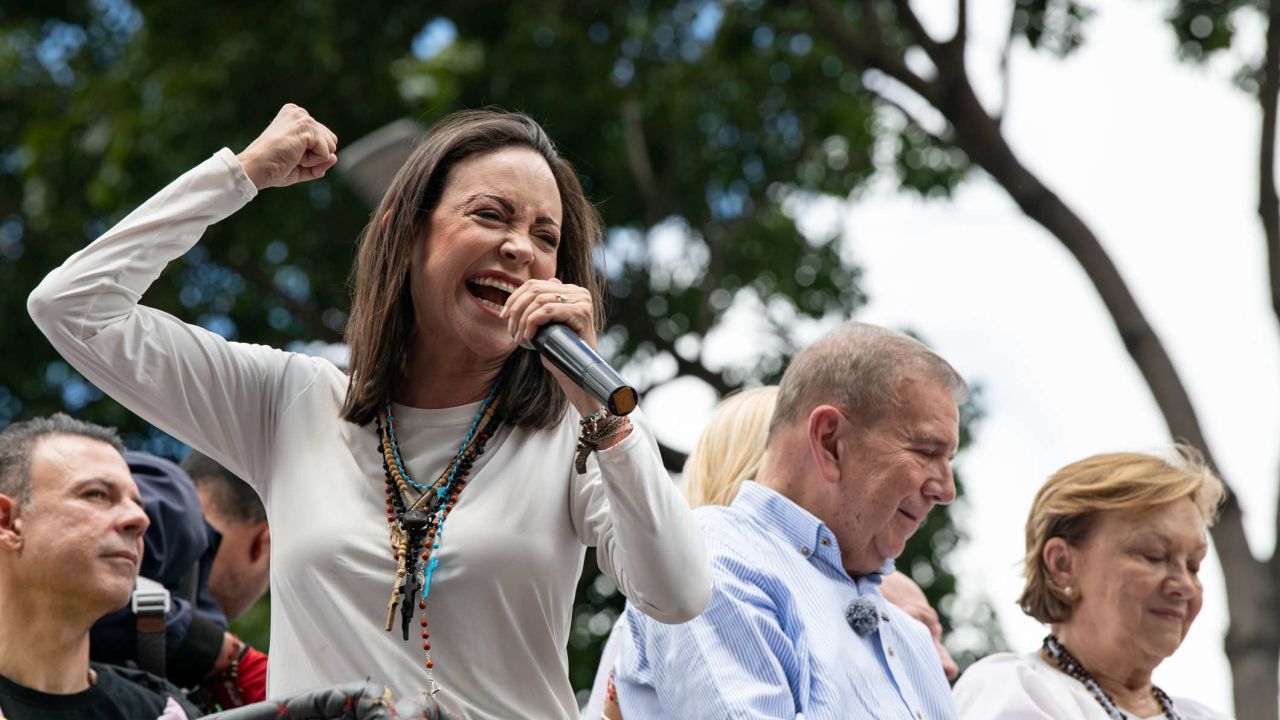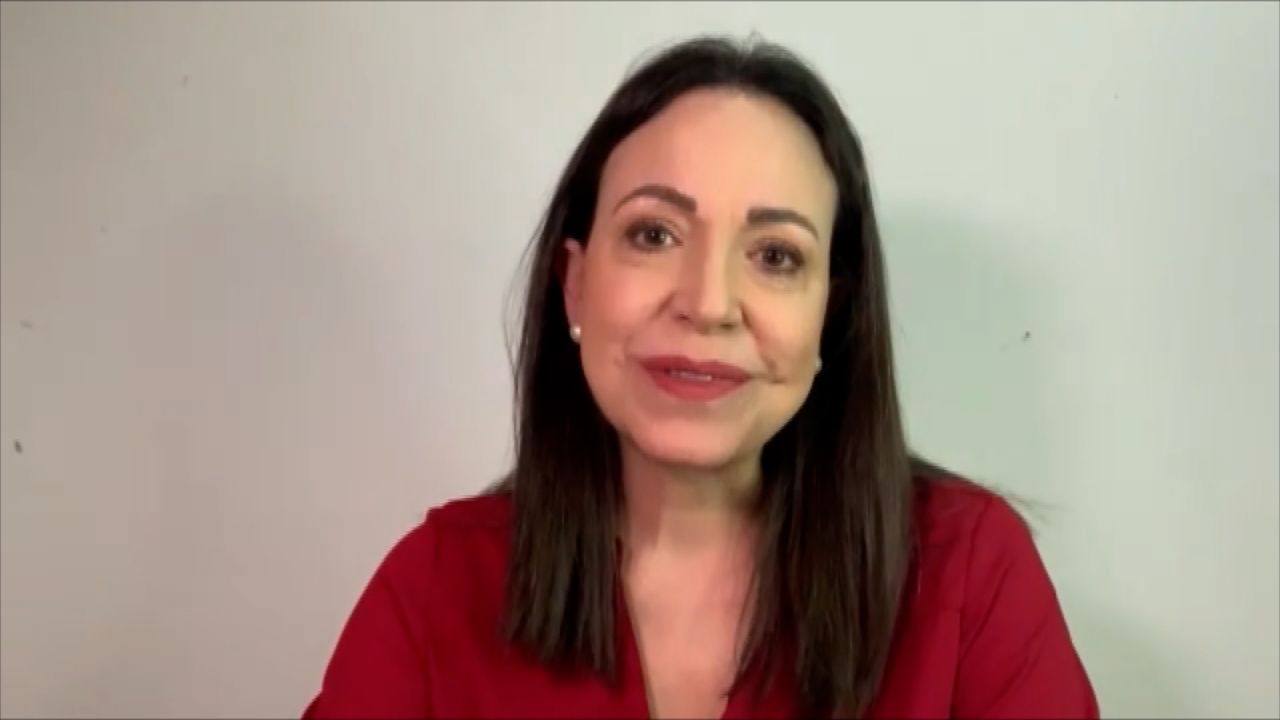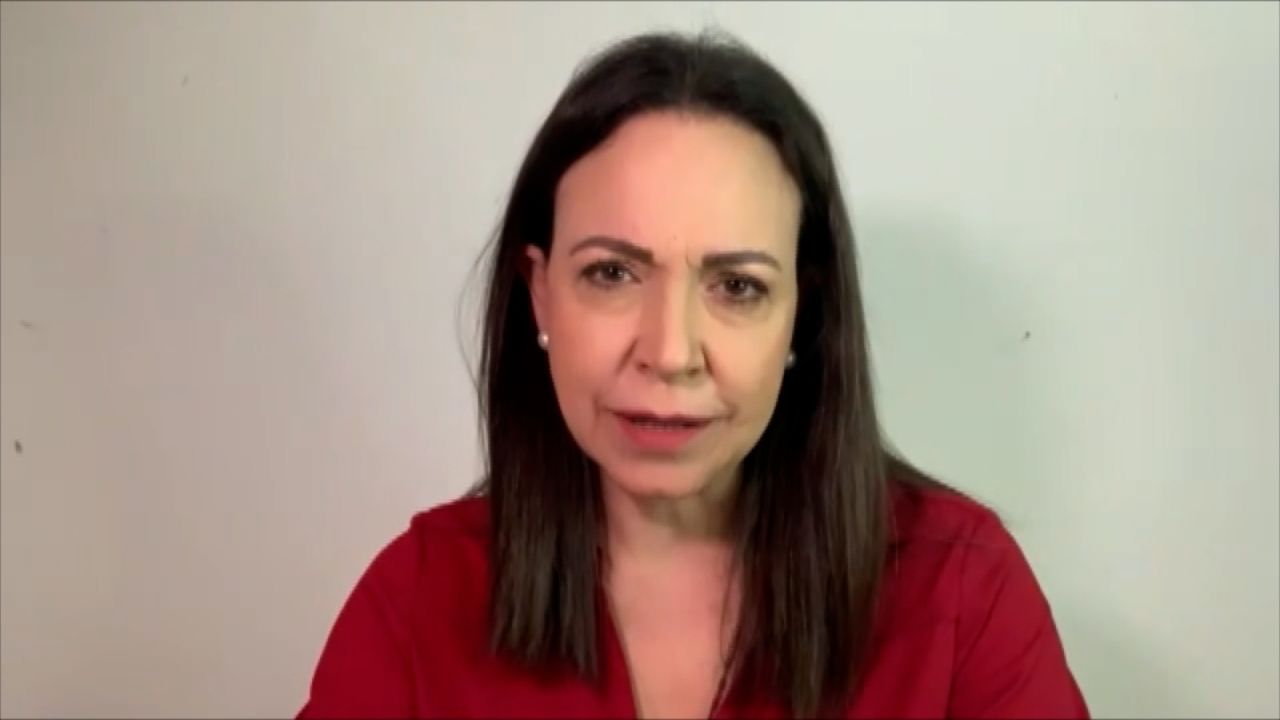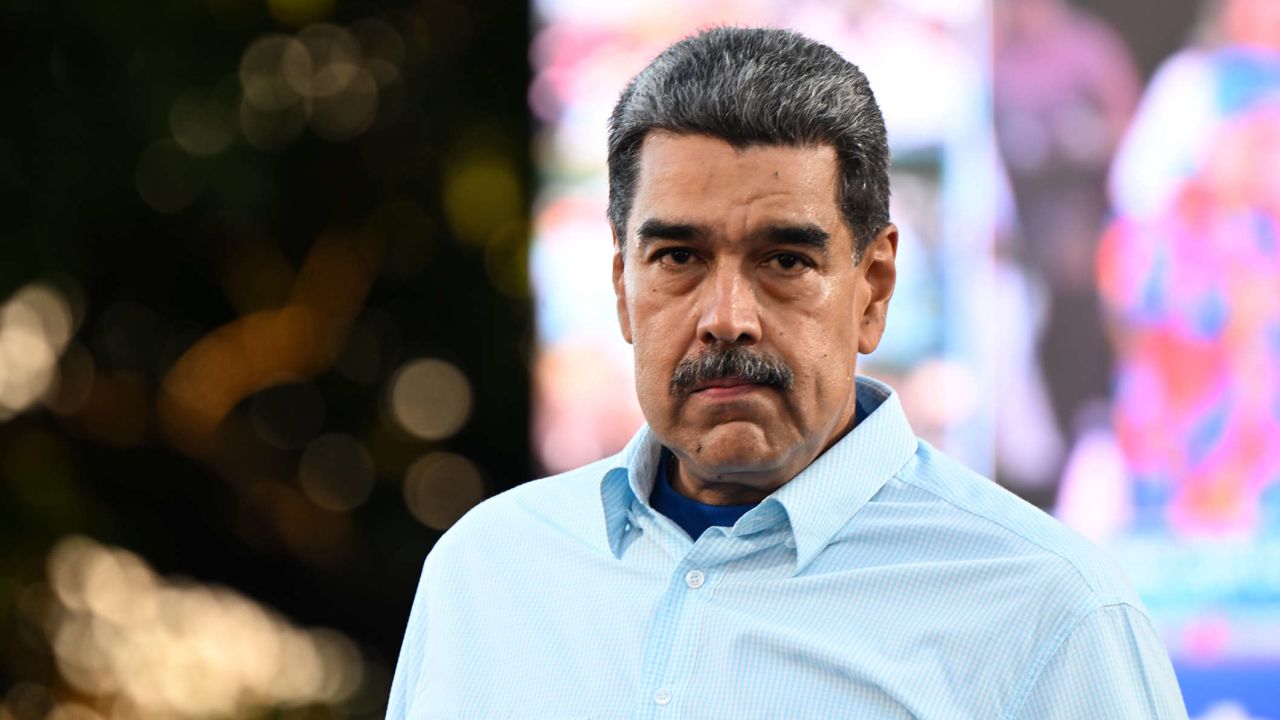( Spanish) – Venezuelan opposition leader María Corina Machado has called for mobilizations around the world to prevent Nicolás Maduro from taking possession of the presidency of Venezuela for a new term on January 10, after the controversial elections of July 28. The result presented by the Venezuelan authorities has been rejected by the opposition, which denounced electoral fraud and says that the true winner of those elections was Edmundo González Urrutia, something that several governments around the world support.
How does the opposition plan to prevent Maduro from being sworn in and González Urrutia taking office? What does María Corina Machado think the United States and Latin American countries should do between now and January 10? Andrés Oppenheimer spoke with the opponent and also asked her about her expectations regarding President-elect Donald Trump.
The National Assembly of Venezuela approved a new law on November 28 that punishes Venezuelans who support any type of foreign sanction that affects the country. Maduro enacted that law on Friday, November 29.
The Venezuelan law arises in response to the approval this Monday in the United States House of Representatives of the Law Prohibiting Operations and Leases with the Illegitimate Authoritarian Regime of Venezuela, also baptized as “Bolívar Law”, which, among other issues, seeks to end US Government contracts with Venezuela.
Machado applauded this initiative, which caused the Venezuelan Attorney General’s Office to open proceedings against him for possible treason and President Nicolás Maduro to openly criticize the “Bolívar Law.”
The political leader, who has already been disqualified from political participation and sanctioned by the Government before, says that this new investigation “has no legal basis” and said that it is a regular pattern against opponents. “I don’t know how many lives I would need to have to pay for all the years in prison that they supposedly want to charge me with.”
“What is true is that they are becoming more virulent every day,” Machado said. And what happens in the Argentine embassy, he says, is an example of this.

María Corina Machado on the siege of the Argentine embassy in Venezuela: “It is a reflection of desperation”
The National Campaign Command of Edmundo González and Machado denounced on November 26 the alleged theft of electrical fuses from the Argentine Embassy in Caracas, which for months has been providing asylum to six opponents of the Government of Nicolás Maduro.
The Command said in its diplomatic headquarters. Cabello denied that the Government of Venezuela is acting against the property or is responsible for it being left without electricity.
In this regard, Machado said that “what has become very clear to me is that there is a reaction, a direct relationship between them (the members of the regime) feeling weaker, being more at odds between their different groups that make up this criminal system and his virulent reaction.”
“That is a reflection of their desperation.”

Machado to the US government: “It is now and not in January that Maduro must receive an unequivocal message”
The United States formally recognized Venezuelan opposition leader Edmundo González as the country’s elected president following the July 28 presidential elections, Secretary of State Antony Blinken announced on November 19. The announcement marks a significant change in US policy toward Venezuela: until now, the US and other countries had concluded that González had won more votes than the ruling candidate, President Nicolás Maduro, in July, but not They had come to recognize him as “president-elect.”
Machado celebrated that decision. “The government of the current (Biden) administration acted correctly (…) This is very important.”
The opponent also highlights that this and the favorable vote on the Bolívar Law “have been initiatives that have had the support of both parties, Democrats and Republicans.”
“The world is reacting and I believe that the Government of the United States has to take a more firm approach in getting these messages (to Maduro),” he said, “because it is now and not in January, that Maduro must receive an unequivocal message from that their time is up and that for their own good they have to accept the terms of this negotiation.”
Machado believes that Trump should invite Edmundo González to his inauguration in Washington on January 20 and even meet with him beforehand. “Edmundo can also meet with President Biden, as he has done with other heads of state.”
The United States also announced new individual sanctions against more than twenty officials aligned with Maduro to pressure him to accept the results of the country’s July presidential elections.
Regarding governments that have offered to mediate after the elections, requesting the detailed disclosure of the results and the minutes, such as those of Colombia and Brazil, María Corina Machado considers that “it no longer makes sense to demand that the regime hand over the minutes because it does not “He’s going to hand them over.” The original minutes, he says, “we have them” and the Maduro Government “refused to show them because they would be its great defeat.” That is why Machado believes that we must move to a next phase in which through “interlocution channels” Maduro is directly made aware that he will not be able to maintain relations with his allies in the region.

María Corina Machado: “We have found forms of pressure against Maduro’s remaining pillars”
Machado assures that Maduro relies on a pillar “of armed, military, civil and also paramilitary repression, and a pillar of judicial repression. “The vast majority of the judicial system is totally against this system being prolonged,” he says.
“So, these are the pillars on which we have to press and press. Make these individuals understand that. The crimes they commit by attacking, judging or imprisoning innocent Venezuelans will compromise them too.”
For Machado, the civil demonstration against these structures – through the mothers of political prisoners, human rights organizations and international sanctions – will be the way to collapse the bases on which what he calls the “tyranny” of Ripe.

Did Nicolás Maduro get stronger or weaker? Andrés Oppenheimer’s analysis
With information from Osmary Hernández, Verónica Calderón, Stefano Pozzebon, Jennifer Hansler and Mauricio Torres.



![[Img #74675]](https://thelatestnews.world/wp-content/uploads/2024/12/They-discover-a-new-class-of-X-ray-sources-in-the-150x150.jpg)












Add Comment